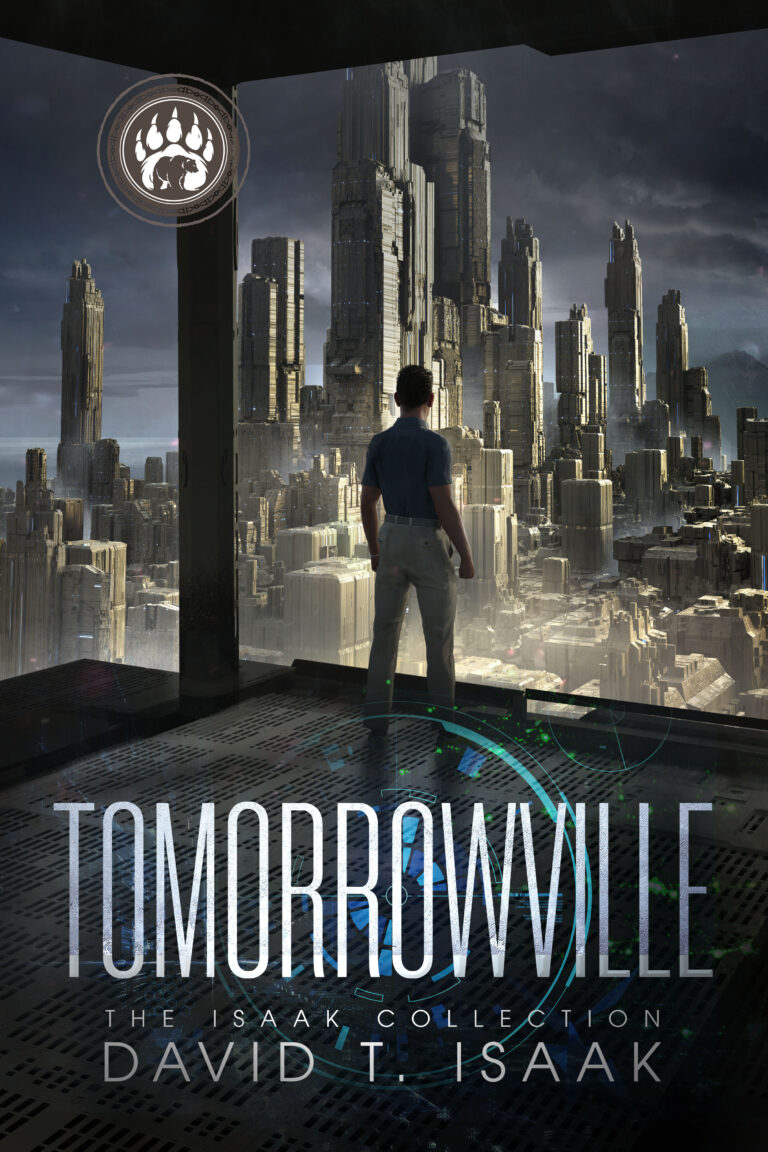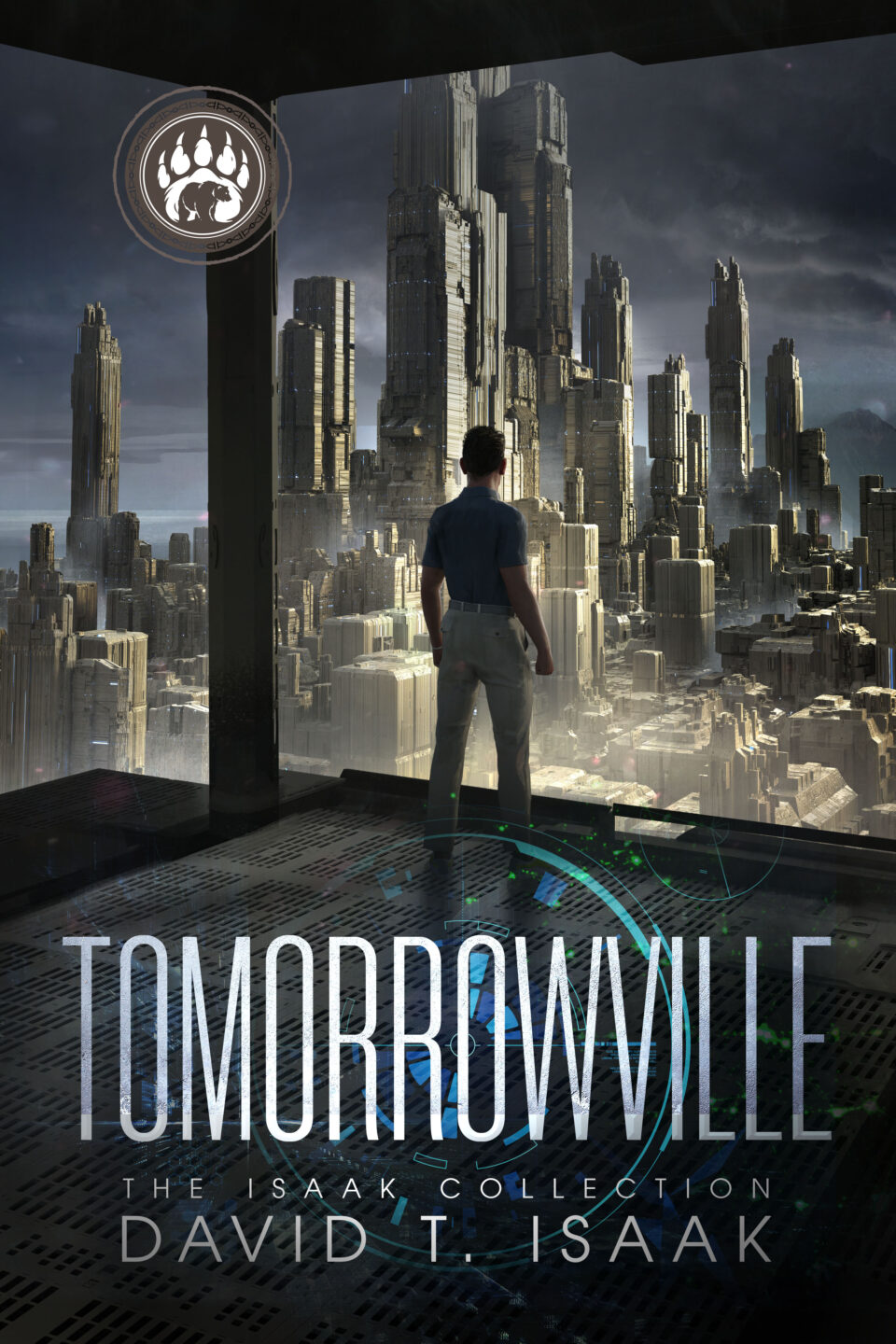Set in the not-so-distant and disturbingly recognizable world of 2088, David T. Isaak’s TOMORROWVILLE is a smart piece of science fiction that blends dark humor with uncomfortable truths. The novel imagines a future that gleams on the surface (seamless tech, pristine smiles, and automated everything) but hides a brittle, tightly controlled society beneath. It’s science fiction, yes, but also a sobering mirror of where we’re already headed.
The story follows Toby Simmons, a computer whiz whose parents had him cryogenically frozen after a freak accident in 2008. When he wakes up 80 years later, the world he finds is both fascinating and off-kilter. At first, he is dazzled by the glossy sheen of progress—magnetic trains, polished buildings, and the eerie uniformity of people who all seem too perfect. But that awe quickly gives way to unease. The cracks start to show. Freedom of movement now comes with “user fees,” prison labor is quietly baked into the economy, and innovation has stalled in a way that feels eerily plausible. “I’m actually surprised at how little has changed,” he remarks. “There isn’t one single technological development here that I couldn’t have imagined in 1980.”
Isaak’s vision of the future feels uncomfortably close to home. “Apartmentville,” with its endless, hive-like housing blocks draped in bougainvillea, looks sleek on the outside but functions more like a gilded cage. Meanwhile, the COREs, concrete slums at the heart of society, serve as a reminder that class divisions haven’t just persisted; they’ve hardened. The idea that people must pay just to cross neighborhood boundaries (“five dollars, most places”) is one of the book’s subtler and more chilling details. It’s segregation, reinvented. And when Toby finds himself facing down Homeland Security for the simple act of checking out the wrong kind of library book, the satire sharpens to a knife’s edge.
As Toby stumbles through his new reality, Isaak uses his confusion, curiosity, and growing frustration to explore how control today doesn’t always come in the form of violence. Sometimes it comes in the form of distraction, bureaucracy, or just the quiet pressure to comply. His interactions with Boots DeVore, a supposedly “neutralized” revolutionary who speaks to him through hijacked screens, are some of the book’s most thought-provoking—revealing that truth alone is no match for societal inertia.
Still, for all its polish, TOMORROWVILLE doesn’t entirely escape the long shadow of its genre. Some of its dystopian elements (mandatory meds, biometric surveillance, government opacity) will be familiar to seasoned sci-fi readers. While the book builds steadily toward a climactic realization, it ends on a cliffhanger, leaving key questions open and no clear sequel in sight. Depending on the reader, that might feel frustrating rather than provocative.
Even so, the novel resonates where it matters most. It manages to communicate big, complicated ideas about freedom, identity, and how systems quietly shape our lives and make them feel personal. Toby’s evolving relationship with Night Enderhew, the young grad student assigned to study him, is a perfect example. What starts as a clinical assignment slowly shifts into something more real. Their quiet, often awkward conversations help remind us of what’s really at stake—not just liberty, but connection.
TOMORROWVILLE is intelligent, sad, funny, and eerily plausible—an all-too-human look at a future we might still have time to change. Isaak’s posthumous novel doesn’t scream its warnings; it murmurs them with unsettling calm, trusting that readers will feel the undercurrent. And they will.
Deftly blending dystopian satire with emotional depth through sharp social commentary and absorbing prose, David T. Isaak’s TOMORROWVILLE is a compelling read that lingers long after the final page.
~Gabriella Harrison for IndieReader


